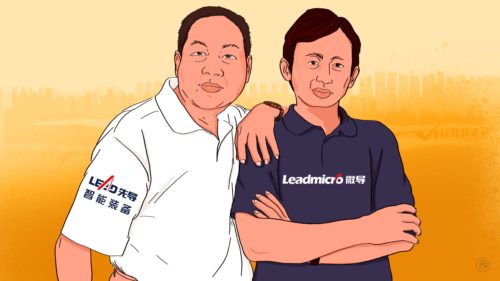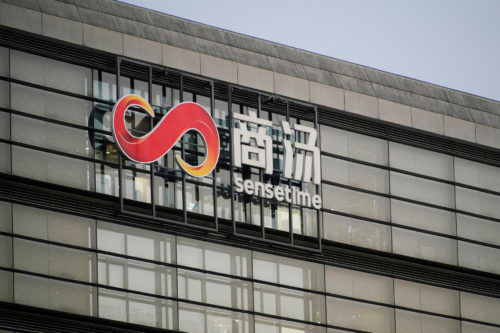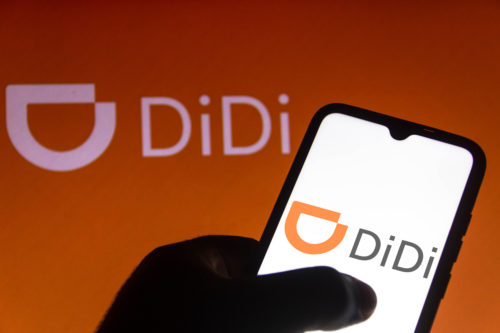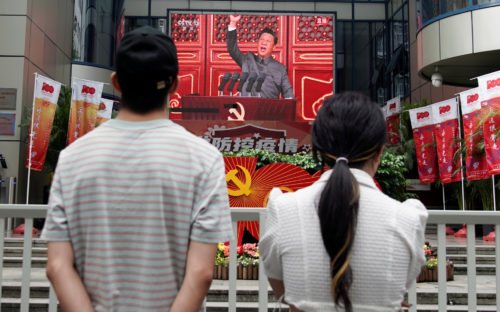Chinese e-grocers Dingdong Maicai and Miss Fresh both file for U.S. IPO
Two competing companies that deliver fresh vegetables and other groceries to Chinese consumers announced on the same day that they would fundraise on American markets.

Dingdong Maicai and Miss Fresh, two directly competing Chinese grocery apps, filed for a U.S. IPO on Tuesday. Both are seeking a proposed fundraising amount of $100 million.
Established in 2017, Dingdong Maicai (叮咚买菜), literally “Dingdong Buy Vegetables,” is an online grocery app with headquarters in Shanghai that delivers fresh produce in what they claim to be 30 minutes time. It currently operates in 29 cities including Shanghai, Beijing, Shenzhen, Hangzhou, and Suzhou, and is supported by 950 warehouses.
Filing on the same day is Tencent-backed Miss Fresh (每日优鲜). Founded in 2014, Miss Fresh is a pioneer of the “distributed mini-warehouse” model which refers to the placement of warehouses in close proximity to customers for faster delivery times. Dingdong also claims to be a pioneer of the approach, which can be contrasted with store- or warehouse-to-home delivery models popular among third-party platforms like JD.com.
“We strive to make grocery shopping more delightful, more efficient, more affordable and more trustworthy,” MissFresh said in its filing. “We appeal to a new generation of consumers who are willing to pay for the high-quality and convenient experience in grocery shopping.”
“MissFresh wants to make money, Dingdong Maicai wants to burn money”
Dingdong plans to list on the New York Stock Exchange with the stock ticker “DDL,” while MissFresh is listing on the Nasdaq under the symbol “MF.”
According to its prospectus, Dingdong made $1.7 billion in revenues in 2020, nearly triple the $610 million it earned in 2019. By contrast, MissFresh has faltered. In its own prospectus, it reported revenues of $936 million in 2020, roughly the same as the $916 million it earned the previous year. MissFresh also reported revenues of $230 million in the Q1 of 2021, about 40% of the $580 million of Dingdong.
Despite the stagnation, MissFresh is a more established player in the grocery-buying market, which has seen explosive growth since the pandemic supercharged online demand for fresh produce last year. Dingdong, however, is catching up quickly, raising record-breaking sums in an effort to expand its warehouses.
China news, weekly.
Sign up for The China Project’s weekly newsletter, our free roundup of the most important China stories.
Backed by big name investors including Sequoia Capital and Tiger Global Management, Dingdong took in a flood of cash in recent months. In May, it raised $330 million in a D+ funding round led by SoftBank Vision Fund. In April, it raised $700 million, bringing its total fundraising amount to $1 billion, a record for the industry. The company was valued at $2 billion last May.
“MissFresh wants to make money, Dingdong Maicai wants to burn money; MissFresh wants efficiency, Dingdong Maicai wants scale,” according to an article by Caijing (in Chinese) comparing the two e-grocers.
Indeed, according to their prospectuses, the e-grocers are about to take slightly different paths. Dingdong is expanding its “on-demand” delivery platform with a focus on fresh groceries. It seeks to double down on its core competencies: fresh quality, speedy deliveries, and product variety.
MissFresh, by contrast, is leaning into software services. It seeks to “platformize” its pioneering business model — a nod to the “platform as a service” business models (PaaS) of Alibaba and Tencent — by opening its platform to other neighborhood retail businesses and supermarkets, citing a recent “retail cloud business” initiative.
Nonetheless, the two are in the same boat when it comes to a major challenge to the industry: turning a profit. According to an analysis (in Chinese) by Founder Securities, a think tank, 95% of the 4000 entrants in the grocery delivery space in China lost money last year.
Profit will be tough for either company to achieve also because grocery-buying is a ruthlessly competitive sector, with China’s biggest tech titans also launching their own subsidiary businesses, each hoping to get a slice of the pie. These other players include Fresh Hippo of Alibaba, Meituan Youxuan of Meituan, Chengxin Youxuan of Didi, and Duoduo Maicai of Pinduoduo.
In the face of such strong headwinds, differentiation may be the only way to survive. “The businesses used to look more similar,” says Rui Ma, investor and host of TechBuzz China, “but now they’re now trying to find their own specialty as the market gets ever more competitive.”






